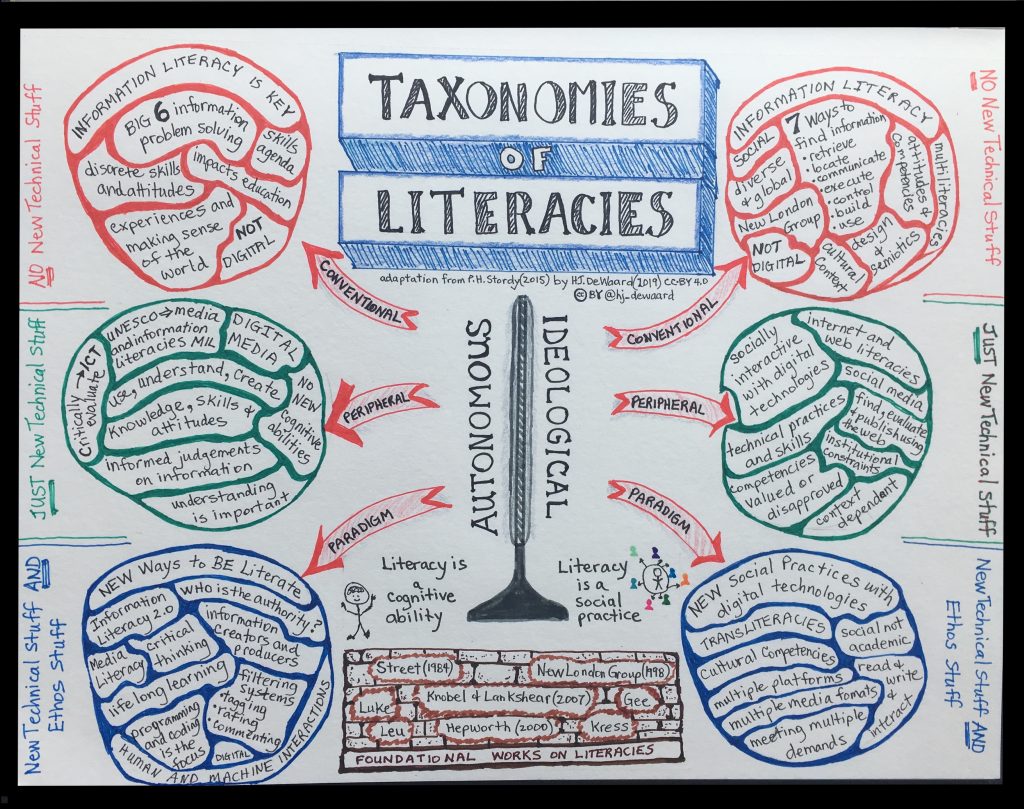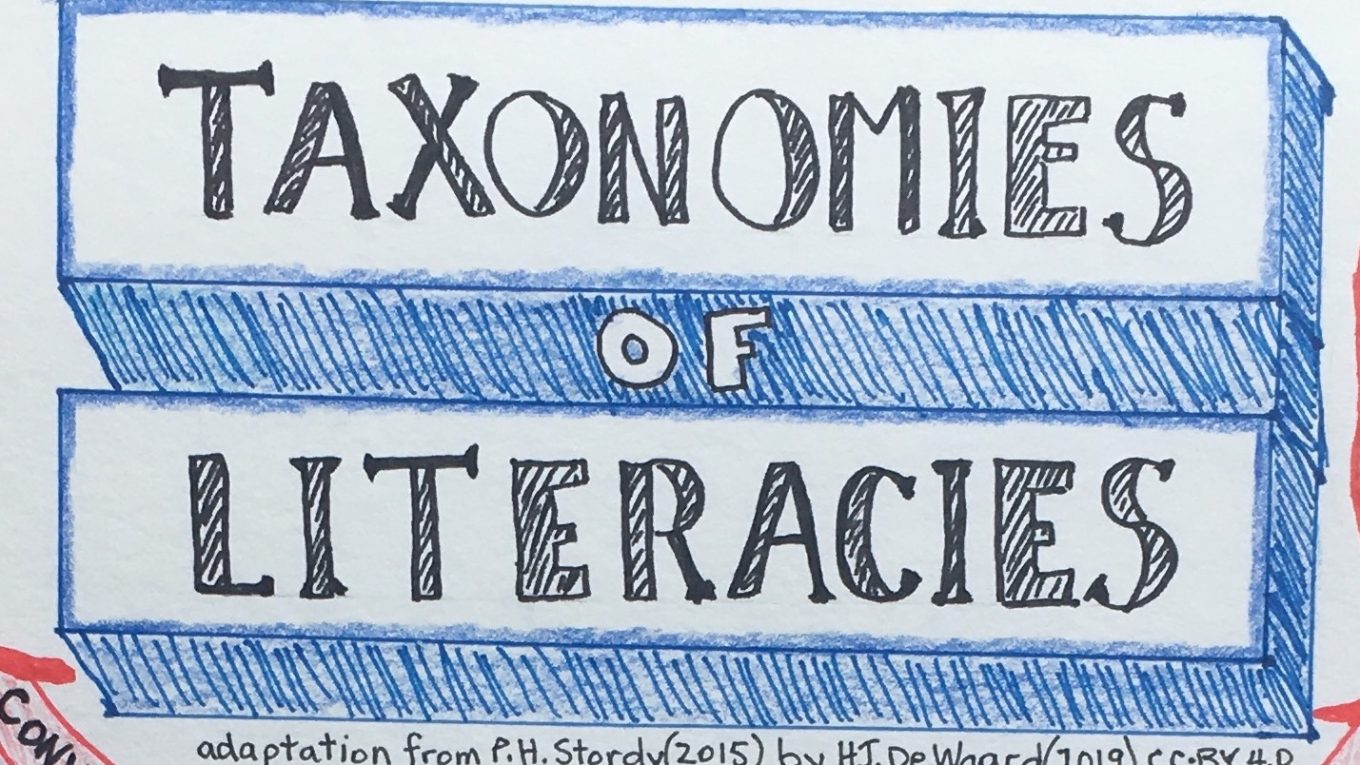Literacies
As part of my reading and writing I’ve recently explored this whole notion of literacy. What is it, how to define it, how to describe it, how to contain it, since there are so many variations and conceptions of the term. Dictionaries and etymologies of the word are limited since the focus is on reading and writing, where numeracy is used for the understanding of numbers and numerals. Today, this term is confounded by a variety of terminologies and iterations.
In my attempt to bring some clarity to this terminology, I’ve crafted a graphic organization of the work by P.J. Stordy (2015) where he outlines a taxonomy of literacy. The primary differentiation occurs in the position of where literacy occurs – in the brain or in our social interactions. The primacy of cognition (autonomous) in being deemed a literate individual focuses on the processes within the brain, those skills and fluencies we exhibit in specific subject areas to show we know, for example how to read and write proficiently. This is seen as a never ending process since once we know something, there is something new to learn e.g. cultural literacy as a cognitive skill set. The primacy of literacy as a social construct (ideological) shifts the focus from the individual’s brain function, to their position within a socio-cognitive environment, where literacy is measured by an individual’s socially embedded practice.

The shift from conventional, peripheral, and paradigm considers the use and access with or without technologies. While literacies in today’s context is often considered in relationship to technologies and the ethos those technologies enable, literacy should not be limited to only technological foci. There continue to be essential literacies that are not bound by the singular use of technology – for example the notion of self regulation as a new literacy is not bound by the use of or the integration of technology, but can be when needs or occasions arise.
This is a beginning into of my inquiry into defining the term ‘literacy’ and understanding what it means to be literate. While I lean toward an ideologically paradigm view of literacy, I need to understand each of the categories, classifications, phylum, or genus within the taxonomy of literacies.
